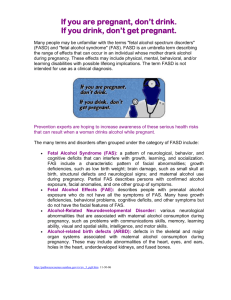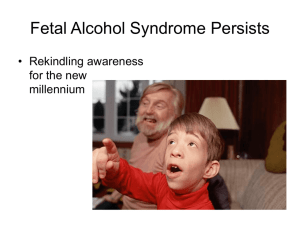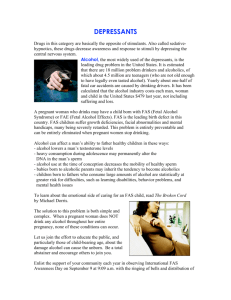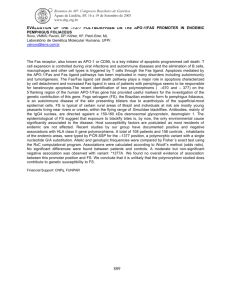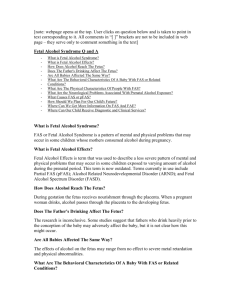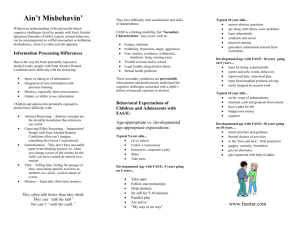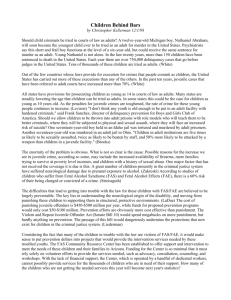10 Common Misconceptions About Fetal Alcohol
advertisement
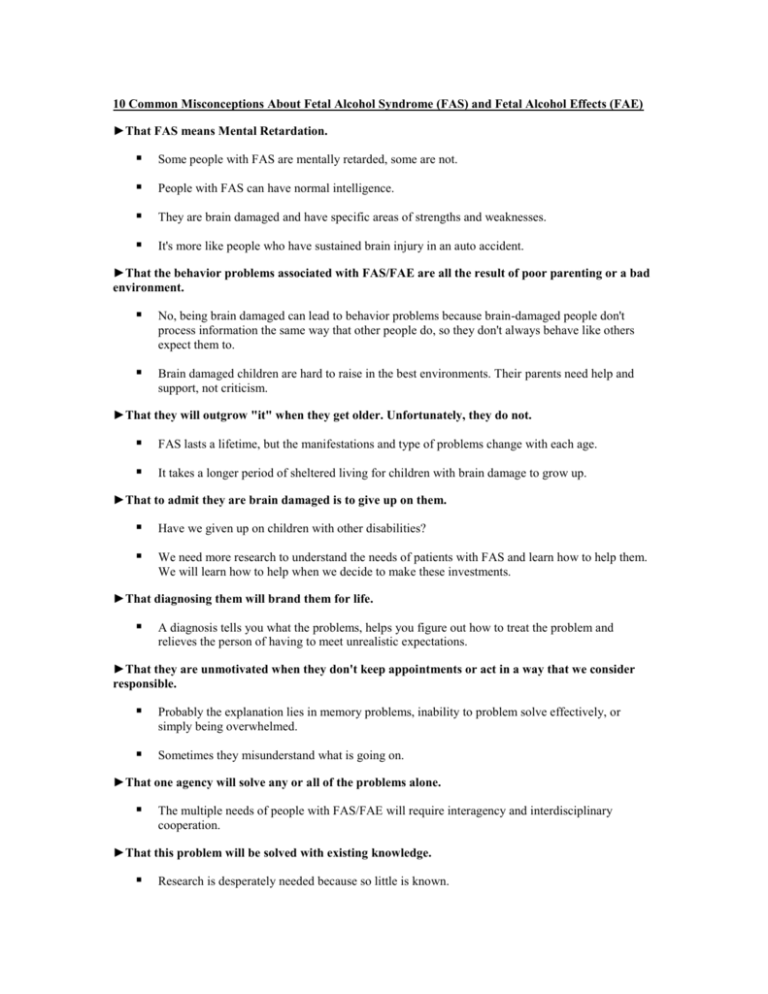
10 Common Misconceptions About Fetal Alcohol Syndrome (FAS) and Fetal Alcohol Effects (FAE) ►That FAS means Mental Retardation. Some people with FAS are mentally retarded, some are not. People with FAS can have normal intelligence. They are brain damaged and have specific areas of strengths and weaknesses. It's more like people who have sustained brain injury in an auto accident. ►That the behavior problems associated with FAS/FAE are all the result of poor parenting or a bad environment. No, being brain damaged can lead to behavior problems because brain-damaged people don't process information the same way that other people do, so they don't always behave like others expect them to. Brain damaged children are hard to raise in the best environments. Their parents need help and support, not criticism. ►That they will outgrow "it" when they get older. Unfortunately, they do not. FAS lasts a lifetime, but the manifestations and type of problems change with each age. It takes a longer period of sheltered living for children with brain damage to grow up. ►That to admit they are brain damaged is to give up on them. Have we given up on children with other disabilities? We need more research to understand the needs of patients with FAS and learn how to help them. We will learn how to help when we decide to make these investments. ►That diagnosing them will brand them for life. A diagnosis tells you what the problems, helps you figure out how to treat the problem and relieves the person of having to meet unrealistic expectations. ►That they are unmotivated when they don't keep appointments or act in a way that we consider responsible. Probably the explanation lies in memory problems, inability to problem solve effectively, or simply being overwhelmed. Sometimes they misunderstand what is going on. ►That one agency will solve any or all of the problems alone. The multiple needs of people with FAS/FAE will require interagency and interdisciplinary cooperation. ►That this problem will be solved with existing knowledge. Research is desperately needed because so little is known. ►That the problem will go away. FAS is preventable but alcohol is so much a part of our culture and so aggressively marketed to those least able to resist, that active prevention activities must continue on all fronts to safeguard our children's future and the future of our people. ►That their mothers had an easy choice not to drink during pregnancy, and through callousness or indifference, permanently damaged their children. Biological mothers of children with FAS need help with their alcoholism and/or birth control. Pregnancy is an excellent time for alcohol abusing mothers to stop drinking, but they need help. Prepared by: Ann P. Streissguth, Ph.D. Fetal Alcohol & Drug Unit, Department of Psychiatry & Behavioral Sciences School of Medicine, University of Washington, Seattle, WA 98195, with editing. Adapted by: Claire D. Coles, Ph.D.

